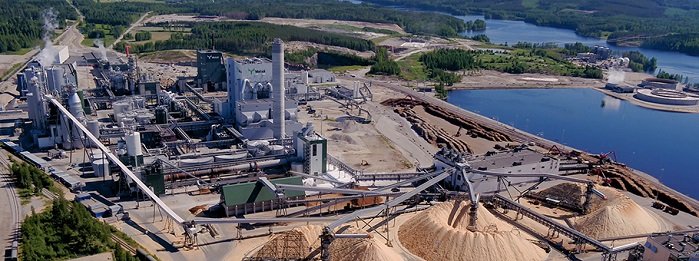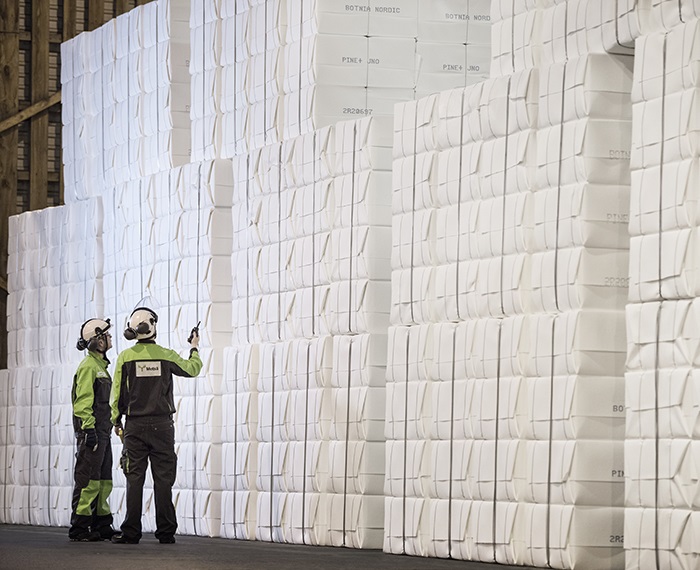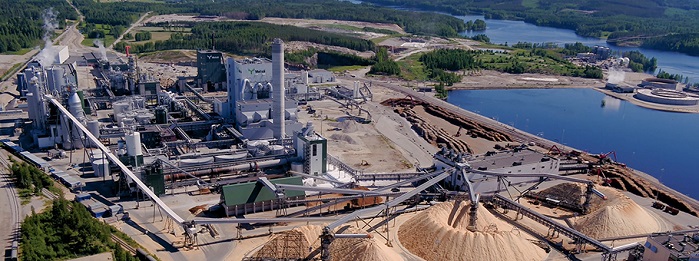-300x192-cropped.jpg)
EU funding for Metsä Fibre’s projects
In marking its millionth ton of pulp, Metsä Group says it is now actively targeting the production of staple fibres from bio-pulp.

23rd August 2018
Innovation in Textiles
|
Äänekoski
In marking its millionth ton of pulp at its next-generation bioproduct mill in Äänekoski, Finland, on August 8th, Metsä Group says it is now actively targeting the production of staple fibres from bio-pulp.
The Äänekoski mill was started up on 15 August 2017, on schedule and within budget, to make Metsä Group the world’s largest producer of softwood market pulp.

The mill produces 1.3 million tons of high-quality softwood and birch pulp annually, in addition to other bioproducts, such as tall oil, turpentine and bioenergy. New bioproducts that already complement the product portfolio include product gas from bark, sulphuric acid from the mill’s odorous gases and biogas from the sludge from its wastewater treatment plant, as well as biofuel pellets.
In May this year, the company established a new innovation company, Metsä Spring, on the Otaniemi innovation campus in Espoo, Finland. Together with partner organisations, it is investing in new endeavours to identify and develop new business opportunities in sustainable forestry and the circular economy.
The first Metsä Spring’ project is to scale-up a newly-developed staple fibre production method.

The environmentally-friendly production method developed by Metsä is based on direct dissolution using novel compounds for the pulp dissolution stage and relies on wet paper-grade pulp as the raw material.
Metsä Spring is now planning a greenfield demo plant with a capacity of about 500 tons of staple fibre per year to be integrated into the Äänekoski mill.
“It is important to develop new bioproducts that expand the current product portfolio of the forest industry,” says Metsä Spring CEO Niklas von Weymarn, adding that fibres for textiles and nonwovens made from pulp have considerable potential.
Disposable nonwoven-based hygiene products such as diapers would be an obvious target market, given that pulp is already widely employed for absorbency in their cores.

Business intelligence for the fibre, textiles and apparel industries: technologies, innovations, markets, investments, trade policy, sourcing, strategy...
Find out more